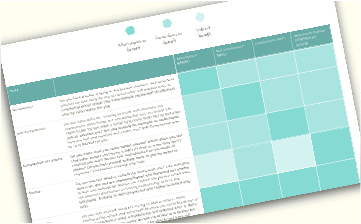Taking stock of what we need
- Do you have trouble staying in the present moment, and often find yourself carried away by stories about what will happen next, or ruminating about things that have already happened? Mindfulness may be very helpful for you.
- Do you have difficulty treating yourself with kindness and compassion when things are not going the way you would like them to go? Do you have a harsh inner critic that tries to motivate you by berating you? Are you longing for someone to understand how you feel and comfort and soothe you? Self-Compassion may be very helpful for you.
- Do you often wish you could handle yourself better when you see that other people are having a difficult time or when they aren’t treating you well? Do you feel overwhelmed by the needs of others? Do you find yourself pulling away or getting angry in response? Compassion training may help.
- Do you feel like there is something wrong with you? Like everyone else is ok, but you are somehow flawed and therefore not worthy of love and belonging? Shame can attacks the person rather than the behavior and leaves us feeling undeserving of love and belonging. Training in self-compassion and shame resilience may help.
- Do you find yourself living life trying to please others, often feeling guilty, afraid and ashamed? Wishing you could break out of the box and have a more wholehearted and fulfilling life? Is there something you wish you could do, but are afraid to step into the arena for fear that you’ll fail and not be able to get back up? Training in wholeheartedness and resilience may be helpful.
Measuring where we are now
There are a couple of self-assessment tools that can help you understand where your blocks are. The first is the self-compassion scale developed by Dr. Kristin Neff. Take the test here. The scale is divided into three components:
- The first is mindfulness vs. rumination. This is a measure of how well we are able to be present in this moment. Look at your score here to see if mindfulness training may be helpful for you.
- The second is common humanity vs. isolation. This is a measure of how connected we understand ourselves to be. Scoring on the isolation end here suggests that we need training on how to strengthen our understanding that we are all connected and belong.
- The third is self-kindness vs. self-criticism. This is a measure of how we treat ourselves, especially when we suffer, fail or feel inadequate. Scoring on the self-critical end is an indication that self-compassion training can be very helpful.
The second self-assessment tool that is helpful is the Fears of Compassion tool developed by Dr. Paul Gilbert. You can find the tool here. This also has three components.
- The first measures fear of being compassionate toward others. Scoring high on this subscale is a strong indicator that compassion training would be helpful.
- The second measure looks at fear of receiving compassion from others. Scoring high on this subscale is an indicator that self-compassion training would be helpful.
- The third measure looks at fear of expressing kindness and compassion toward yourself. This is an indicator that self-compassion is difficult for you. While self-compassion training is ultimately the most beneficial for this, you might benefit from mindfulness training first.
About the courses
There are many, many courses available. This is not an exhaustive list, rather it is a list of the courses I teach and or recommend the most. I find it helpful to talk about them in four main categories: mindfulness, self-compassion, compassion for others, and wholehearted living. When I speak about the four main categories, it is clear that while we can see them as separate skills and work to develop each aspect, each of them depends upon the others and it is not possible to fully manifest any of them without all of them. Accordingly, I see value in each and even greater value in taking all of them.
Also, each curriculum is a standalone curriculum, and each curriculum has components of other curriculum in the course. However, each class is only about 8 weeks. So the focus of each class differs. For example, there is mindfulness in the Mindful Self-compassion class, but it is not a main focus in the training, so if you want to learn mindfulness, a course such as Mindfulness Based Stress Reduction may be a better place to start.
Please note that when I speak of mindfulness courses, since most of them are an offshoot of Mindfulness Based Stress Reduction, I will refer primarily to that class. While I no longer teach MBSR, courses are widely available in most areas worldwide, and also on-line. Please see my resources page for more information about some trusted MBSR providers.
In order to organize the benefits in an easy to present way I’ve developed the following chart.
This chart is just a tool to help you figure out where you would like to start. Each course ultimately compliments the others and since self-discovery and learning is an ongoing process, trust your own intuition about where to begin. You may even find that journeying through all of them at a pace that makes sense to you will be great benefit.
 [table id=1 /]
[table id=1 /]
For more information about each course I offer please see my list of courses here.
MBI Sorter © Michelle Becker




